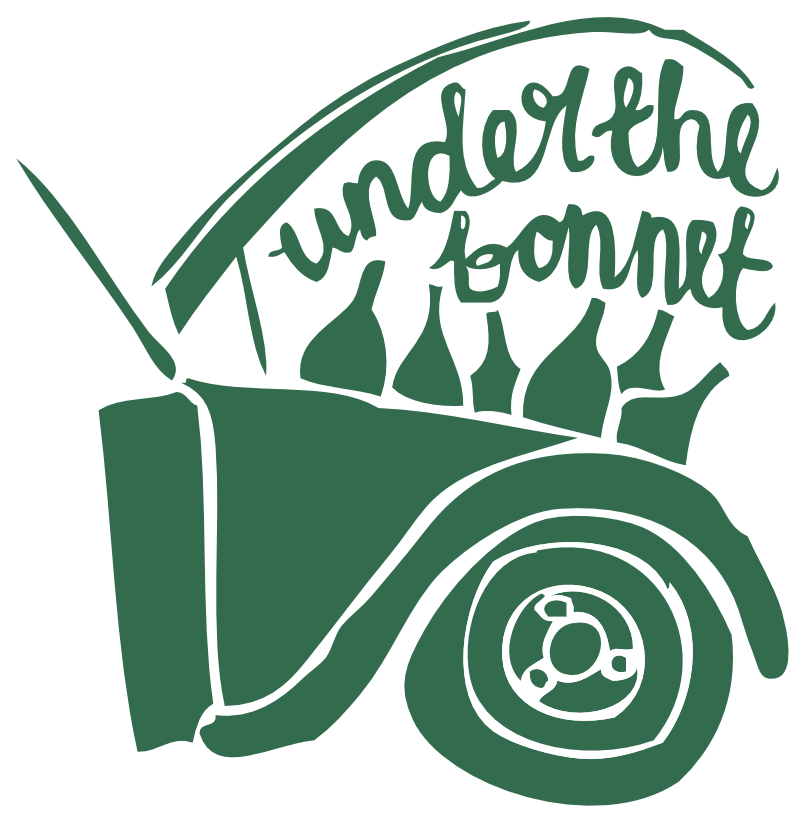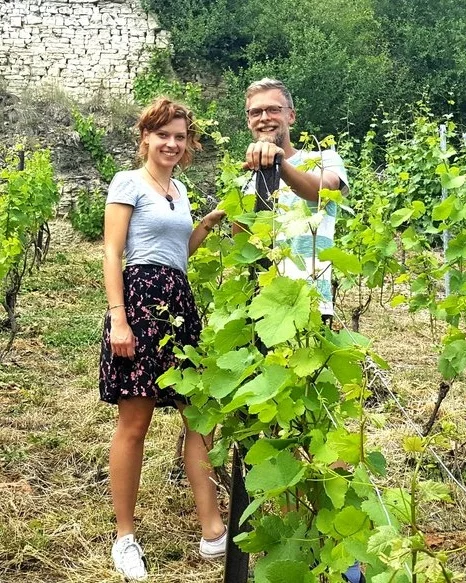Weingut Buddrus - Konni & Evi
Winemakers
Konrad Buddrus & Evi Wehner
Type of agriculture
Organic, with use of biodynamic principles
Vineyard area
1.8 ha
Country, Region, Subregion
Wines
Konni and Evi met while Konni was studying winemaking in Wurzburg. Konni had the chance to buy a plot of vines and so they moved back to his hometown of Burgscheidungen in Saxony-Anhalt, just west of Leipzig. This is not their full-time job at the moment. Evi is a primary school teacher and Konni works in a larger conventional winery for four days a week. All the work is done at evenings and weekends.
Having his own vineyards has been on the radar for a while for Konni; he started out with it as a part-time job when he was just 13 and has been hooked ever since. He made his first "own" wine that year with 20 litres of juice from a friend. Work experience has taken him to New Zealand and Austria. Their first vintage (2017) was completed while Konni was still studying. At the end of 2016 he had seen a plot of vines for sale on eBay, it turned out he knew the owner already so he got straight on the phone.
They began conversion to organic and biodynamic farming straight away. Konni was inspired to do this by the time he had spent in Austria working at Heinrich.
This first 0.8-hectare vineyard Ziegental — "goat valley" – contains a mixture of fairly old vines, Muller Thurgau (50-80 years old), Silvaner (30-80 years old) and Portugieser (50 years old). Soils are very rocky limestone which gives real backbone to the wines. This year they have taken on four more little plots, including an amazing seven terraces of the "Mountain of Silence". This contains Portugieser, Chasselas, Riesling and Silvaner. Some of the vines there were planted as far back as 1912.
In the time-honoured way, monks were the first to bring winemaking to this area in the middle ages. Post-WW2 there were only 20 to 30 hectares planted in the area. In the years before German unification in 1990, the plantings had increased to 780 hectares. The growth increased due to the fact the people in the DDR didn't have enough wine for their own consumption. They purchased a lot of cheap and low-quality wine from the other Soviet states. They then decided to make more for their own people, because they could sell it in the region.
Family and friends are helping a lot with the work in the vineyards, without this the project would not be possible. They are looking for a pure expression of the region, low alcohol and higher acidity than other growers.










Pressed and barrelled with Muller Thurgau grapes for 11 months. No filtration, fining and added sulfur. Aged in German oak barrels.